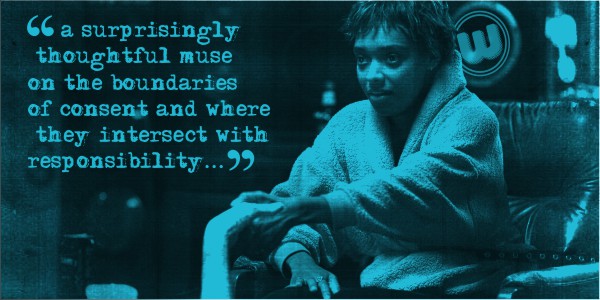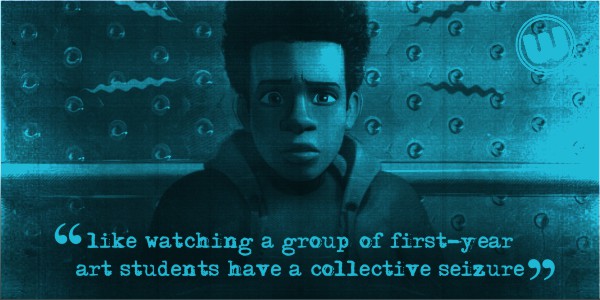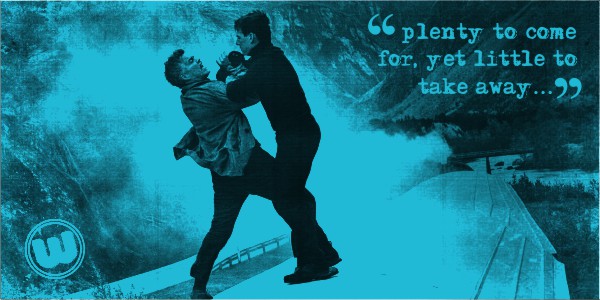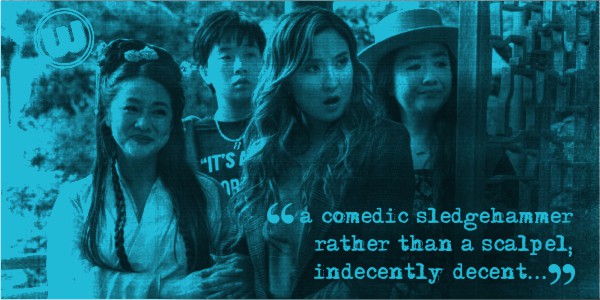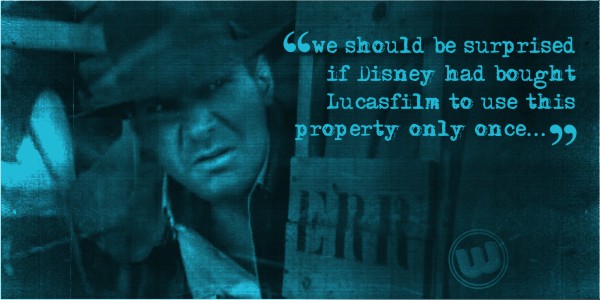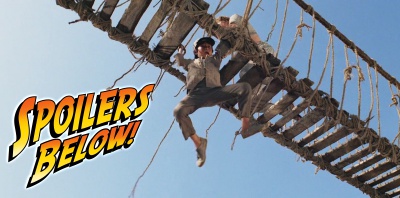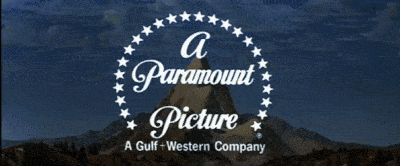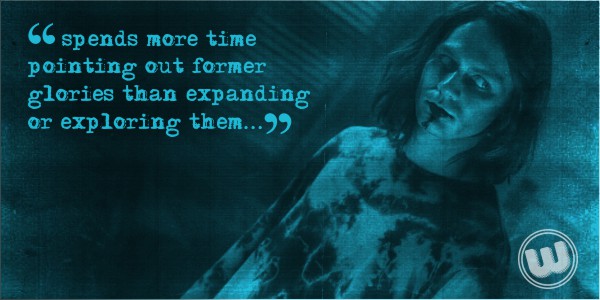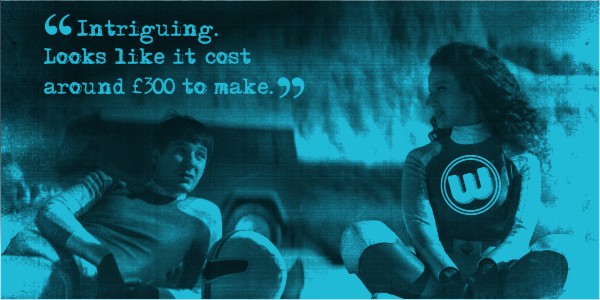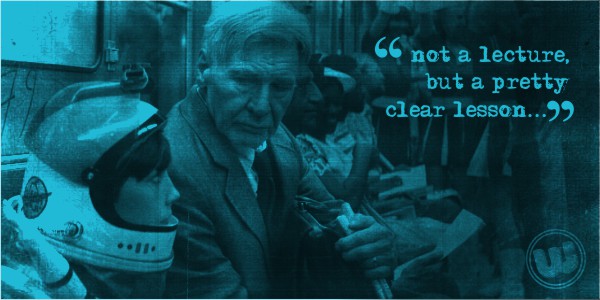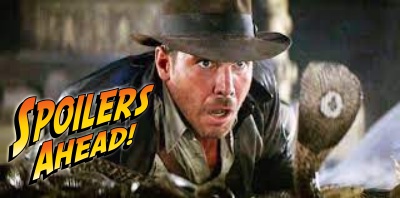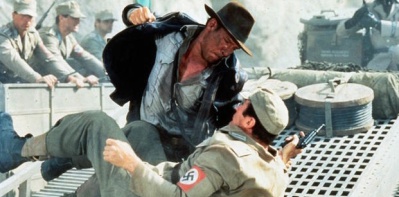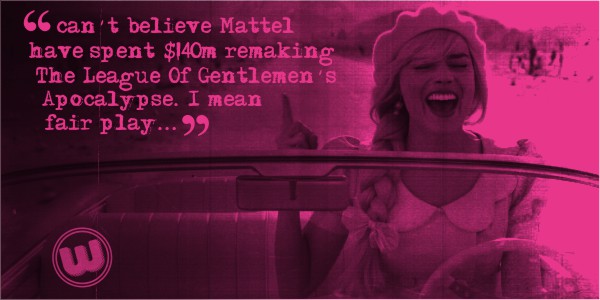
Barbie
(Spoilers)
Cert: 12A / 114 mins / Dir. Greta Gerwig / Trailer
Life is pretty good in Barbieland. Stereotypical Barbie (Margot Robbie) enjoys an idyllic existence partying, relaxing and socialising with a wide swathe of other Barbies. Beach Ken (Ryan Gosling) joins in but pines from afar, wishing their non-committal relationship could move to the next level, while also enjoying an active social life with all the other Kens. But strange things are afoot, and Barbie notices the shine beginning to rub thin on her daily activities; food tastes bad, showers are cold and she can't shake growing feelings of existential dread.
Visiting Weird Barbie (Kate McKinnon) on the outskirts of town, our heroine learns that her problems stem from angst in The Real World, where the girl who owns the doll is suffering a series of emotional upheavals. This discord has caused a tear in the space-time continuum, and the only chance Barbie has of putting things right is by travelling into The Real World (with Ken in tow) and bringing a little sparkle to Los Angeles before Barbieland falls apart...
BROKEN
So it seems Mattel have finally broken into the live-action movie IP business by spending $140 million*1 in remaking The League Of Gentlemen's Apocalpyse. I mean fair play, I did not have that on my 2023 bingo card, but at least they've got the action figures on the shelves already so this is a bonus (HASBRO TAKE NOTE).
After riffing on Kubrick's 2001 as per the teaser trailer, Barbie's opening act is everything you'd expect from A Barbie Movie naturally, and archly self-aware as it is, still feels like being kidnapped by a hen party and waterboarded with Lambrini. That said, the production design is a thing of surgically precise beauty, a wry homage to the brand rather than a parody. The players are entirely onboard and carry this in the same vein, and both Robbie and Gosling are perfectly chosen with excellent comic timing. Greta Gerwig's tight direction makes the most of her script with longtime collaborator Noah Baumbach.
There are plenty of laugh-out-loud gags throughout, both in Barbieland and The Real World. A huge supporting cast are having a blast as the various branded iterations of Barbie and Ken, and Michael Cera brings his trademark anxious demeanour as Allan. America Ferrera and Ariana Greenblatt are superb as Gloria and Sasha, the mother/daughter combo caught up in the strife which has opened a gateway between planes of existence. Will Ferrell plays the (appropriately unnamed) CEO of Mattel by playing Will Ferrell™, and Dame Helen Mirren continues to channel the late John Hurt by providing a voiceover that's so cloyingly tongue-in-cheek it actually cheapens both the film and her own IMDB catalogue.
The film wears its feminist credentials on its sleeve and does so very well, even if the message feels very much on the nose a lot of the time. But the fact that this ethos has made it out of a dozen boardrooms and onto mainstream cinema screens in such a prominent style is a feat to be applauded in itself. The version of what we see could not have been made without Mattel's endorsement, and while the impression remains that the paymasters are generally in on the joke, we're also left with the feeling Gerwig and Baumbach are filing off many of their sharper edges. What's more interesting is the boxes the film refuses to tick. Despite the ferocious branding and leaning heavily into the current, financially lucrative, version of its namesake, Barbie is not a children's movie. Children can certainly watch it (within the expected 12A parameters obviously), but it's made for adults - specifically, ones who remember Barbie but don't necessarily have a house full of them any more. And yet at the same time, this isn't an empty, cash-grab nostalgia exercise. It's promoting the product definitely, but it's more about selling the idea of Barbie. Or an idea, at any rate.
POISON
In terms of the actual mechanics of the storytelling, things are a little more... well, vague. The spoilers start here, by the way. Even in a tale of fantastical allegory, the internal logistics have to work for the audience to buy-in on an emotional level. So, if Barbieland™ includes every Mattel doll that's played with then the town would have a population of billions, whereas if there's a separate, self-contained Barbieland for every girl who plays with Barbies then each one would only be populated by the dolls that girl owns. The girl in question here (it's Gloria) only has the few dolls left over from her daughter's recent childhood, not the vast array of specifically vintage and also very up-to-the-minute Barbies on display in the film. There's no clarification over why this is. The Barbieland we get seems to include one of everyone, with no details as to how many other humans are involved at a higher level or how ownership has been assigned. But okay, we'll go with it.
We're told a portal has opened due to a Barbie-fan having a hard time in The Real World, yet in the real world boardroom scene we're told this has only happened once before. As if a lot of people in the real world who've got Barbies aren't having a hard time a lot of the time precisely because of how the real world works. There'd be portals everywhere. But okay, we'll go with it. Likewise, we're told that Weird Barbie has become eccentric because her owner/handler/God went a bit crazy and drew on her with pens, cut her hair with scissors and wedged her legs into permanent splits. Again, kids are gonna be kids and there'd be a lot of these Barbies around town. But okay, we'll go with it.
We don't see the actual, plot-critical portal itself, just a recurring vehicle-montage through Barbieland then the travellers being on Venice Beach, Los Angeles; and vice-versa to return. Barbie and Ken manage to take Gloria and Sasha back through with them, so we'll accept that regular humans can make the reverse trip with no ill effects. But Will Ferrell and the entire Mattel board of directors also manage to surreptitiously follow them, so we've got to assume that it's accessible to anyone on-foot from Venice Beach, yet nobody else has accidentally wandered into this portal that's been open for the duration of the entire storyline. How much more of this do we have to go with?
The Crocodile Dundee, fish-out-of-water routine with Barbie and Ken in LA is executed very well, but doesn't last for long as the pair are soon heading back, as noted above. Meanwhile, most people in the Real World seem remarkably calm about the human iterations of two actual dolls walking around, especially the ones who know exactly what's happened. You'd think this absolute upheaval of mundane reality and revelation of a parallel universe might be a bigger deal, somehow. Similarly, when Ferrell and the gang find themselves in Barbieland, the cultural offset is mined for almost zero reciprocal material. Indeed, the screenplay has no idea what to do with these characters so just forgets about them until the climactic Beach-Off where they have pretty much no constructive part to play (the board's overall plan to 'fix' the situation by putting Barbie back into a branded packaging-box is also weirdly indistinct). For a movie that's genuinely funny, it's staggering how much comedy-potential is wasted here.
Despite all my snarking though, Barbie is good. I don't think it's quite everything it wants to be, but it succeeds in being the film that it (and its audience) needs. It's certainly more than Kenough. It is entertaining and it does also carry a worthwhile message. The feminism, however, is not its subtext - that's very much The Text. Deeper meaning is perhaps more rudimentary than a fuchsia-fuelled crusade for girl-power...
RATT
The inhabitants of Barbieland seem vaguely aware that they're dolls and that The Real World exists, but they know next to nothing about it and show little desire to change this. It's not in the dolls' capacity or programming to realise the limitations of their surroundings or question anything outside of them, and so they're completely unable to deal with deeper philosophical problems about anything that can't be quantified in colourful plastic and simple, methodical activities. Even Margot Robbie's Barbie needs to be railroaded into knowledge by McKinnon's older, cynical sister. When peace and regularity is restored to Barbieland at the end of the third act, this is performed largely by reverting to the status quo prior to the first.
Barbie herself (the Margot Robbie one) finally rejects this of course, like a Tyrell Corp replicant now aware of its lifespan and wanting more. Having understood that revolution won't (or can't) work in her hometown, Barbie opts for evolution instead and journeys to live as a human in desaturated, complicated, messy meatspace. As we close, Barbie's future is an open road, albeit a markedly and necessarily less pleasant one in the process. But she's chosen hope and possibility. Gloria and Sasha's lives may be better as the credits roll but they're not that different, and we all know that Will Ferrell's character will still be Mattel's CEO on Monday morning and Gloria will still be working for him. Stereotypical Barbie was the only character in the movie to take a chance, to make a choice that bold, that permanent. And the choice is open to everyone on-screen of course, but the availability of that choice to everybody? That's the feminism, here. That's the equality. Because of course, the price of that freedom means having to accept that some people will decide they want things to not get better...
Back in Barbieland, the remaining collective of Barbies and Kens (okay, and Allan) also have wider knowledge of how things really work now, and they choose repair their society by setting all this to one side and carrying on as before. They're not ready to make the change, yet. Similar to Never Let Me Go, this might be the most profound point the film makes - that the Barbies' and Kens' perfect, repetitive, superficial lives are our lives, as we blankly rush through our ingrained routine to spend disposable income being distracted by a two hour dopamine-boost in a cinema. Or at a party. In a restaurant. At a shopping mall. In dream houses full of wonderful organised, covetable, accumulating stuff, always thinking about tomorrow and never appreciating the nuances of today, just as we recoil in horror whenever someone mentions the truth that we will not talk about: that fact one day soon, we will die.
We could live more, feel more, choose the genuine thrill of uncertainty. But it's easier to choose not to. Stereotypical Barbie has chosen to truly live, and in doing so has chosen death. And this is a final theme upon which Barbie does not dwell of course, because it doesn't do to be overtly reminded you're wasting your life by a toy advert...*2

*1 Wikipedia lists the film's budget (production, not including marketing) at $128-$145m. And while that obviously is a lot of money, it has to be said that bringing in a Hollywood-grade film with a production-design this polished and featuring this cast for under 150 large ones is pretty damned impressive, especially looking at the box office returns it's making... [ BACK ]
*2 There is a very strong chance I've over-thought all this of course, but please do bear in mind that I'm the one who interpreted the U-rated Boss Baby animated movie as being a study of infant-mortality induced PTSD... [ BACK ]
DISCLAIMERS:
• ^^^ That's dry, British humour, and most likely sarcasm or facetiousness.
• Yen's blog contains harsh language and even harsher notions of propriety. Reader discretion is advised.
• This is a personal blog. The views and opinions expressed here represent my own thoughts (at the time of writing) and not those of the people, institutions or organisations that I may or may not be related with unless stated explicitly.

